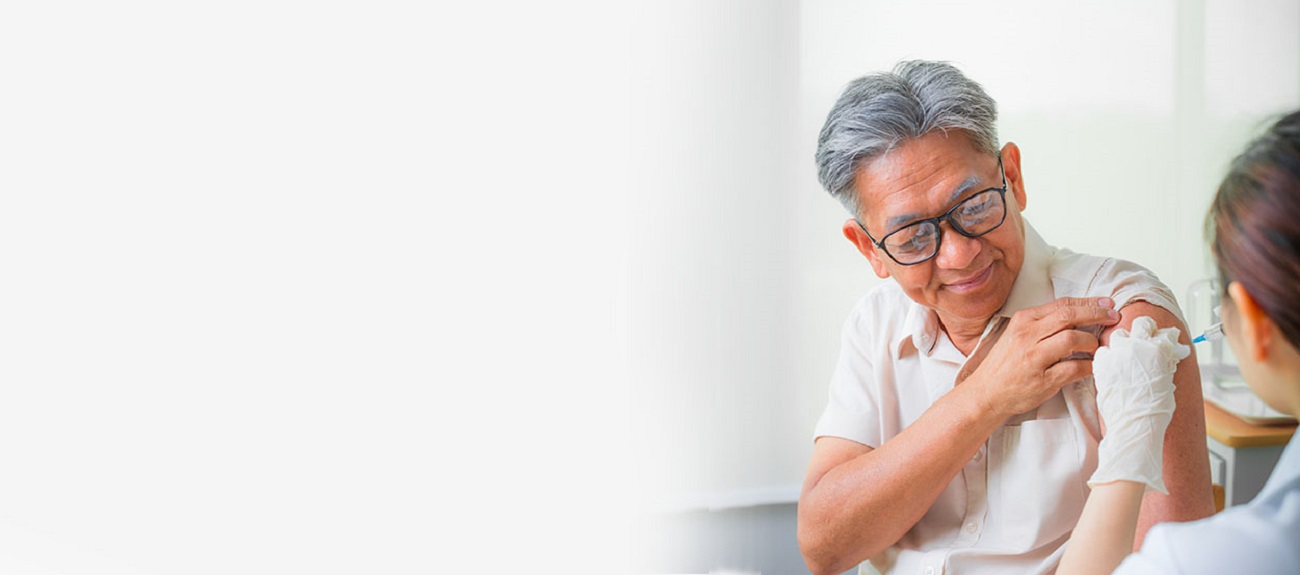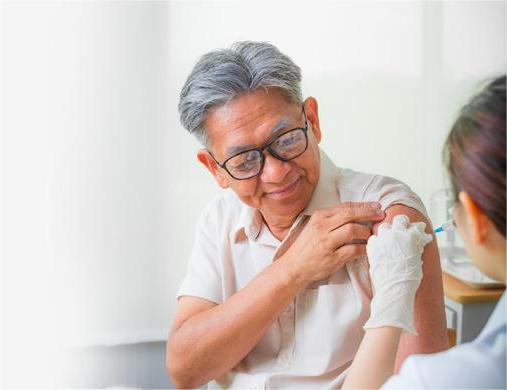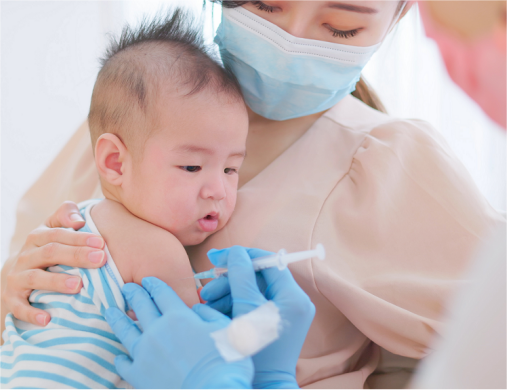Where can I get pneumococcal vaccination?3

How can I protect myself or my child against pneumococcal disease?
There are several ways to help prevent pneumococcal disease:
Vaccination1
Vaccination is one of the most effective ways to prevent pneumococcal disease. Consult your healthcare provider about vaccination options.1
Who Should Get the Pneumococcal Vaccine?2,3
65 years old & above
All adults aged 65 and above are recommended to receive the vaccine.
18–64 years old
People aged 18–64 with certain long-term health conditions (chronic medical conditions) should also get vaccinated.
Including but not limited to the following health conditions:
- Image
Ongoing lung, heart, kidney, or liver problems, or diabetes
(chronic pulmonary, cardiovascular, renal or liver disease, or diabetes mellitus; e.g. asthma, heart failure, chronic kidney disease, hepatitis) - Image
Hearing implant or fluid leak from around the brain/spinal cord
(cochlear implant or cerebrospinal fluid leak) - Image
Missing or poorly working spleen
(anatomical or functional asplenia; e.g. sickle cell disease, coeliac syndrome, surgical removal of spleen) - Image
Weakened immune system
(immunosuppression; e.g. due to cancer treatment such as chemotherapy, long-term steroid use, organ transplant medications, HIV infection, or other immune system disorders)
Under 5 years old
All children younger than 5 years old are recommended to receive the vaccine.
Unsure if the vaccine is right for you?
Consult your doctor for personalised advice.
Other Prevention Methods
- Image
Practice good hygiene: Wash your hands frequently with soap and water, especially after coughing or sneezing.4
- Image
Do not smoke: Smoking damages the lungs and increases your risk of pneumococcal infections.5
- Image
Avoid alcohol misuse: Excessive alcohol use can weaken your immune system and increase your risk of infection.5
Protect yourself from pneumococcal disease.
Pneumococcal vaccines are now available under the National Adult Immunisation Schedule (NAIS).2
Learn more about eligibility and subsidies here.
Get a Doctor Discussion Guide.
Talk about your risk and learn about prevention options. Download the patient information leaflet below to help start a conversation with your doctor or pharmacist.
CHAS GP = Community Health Assist Scheme General Practitioner









